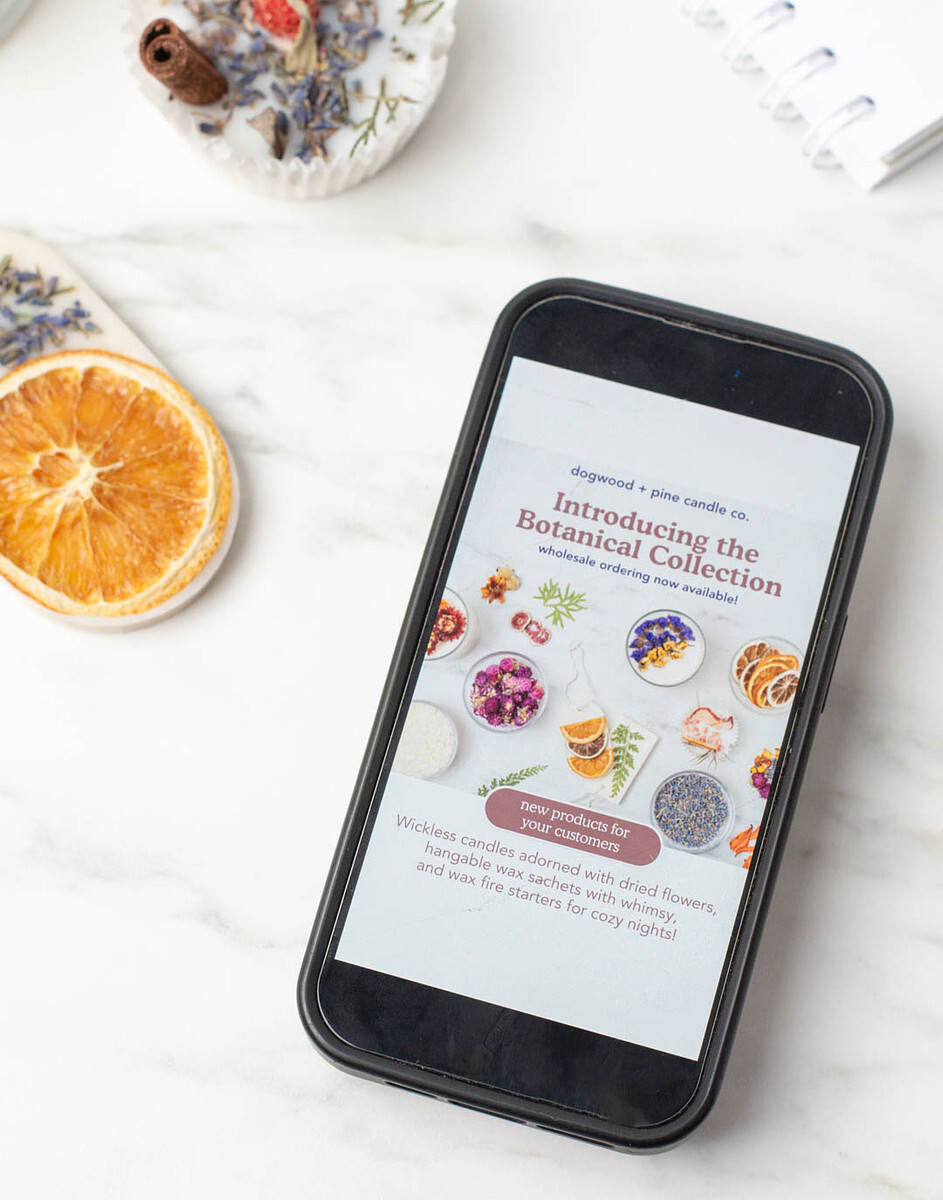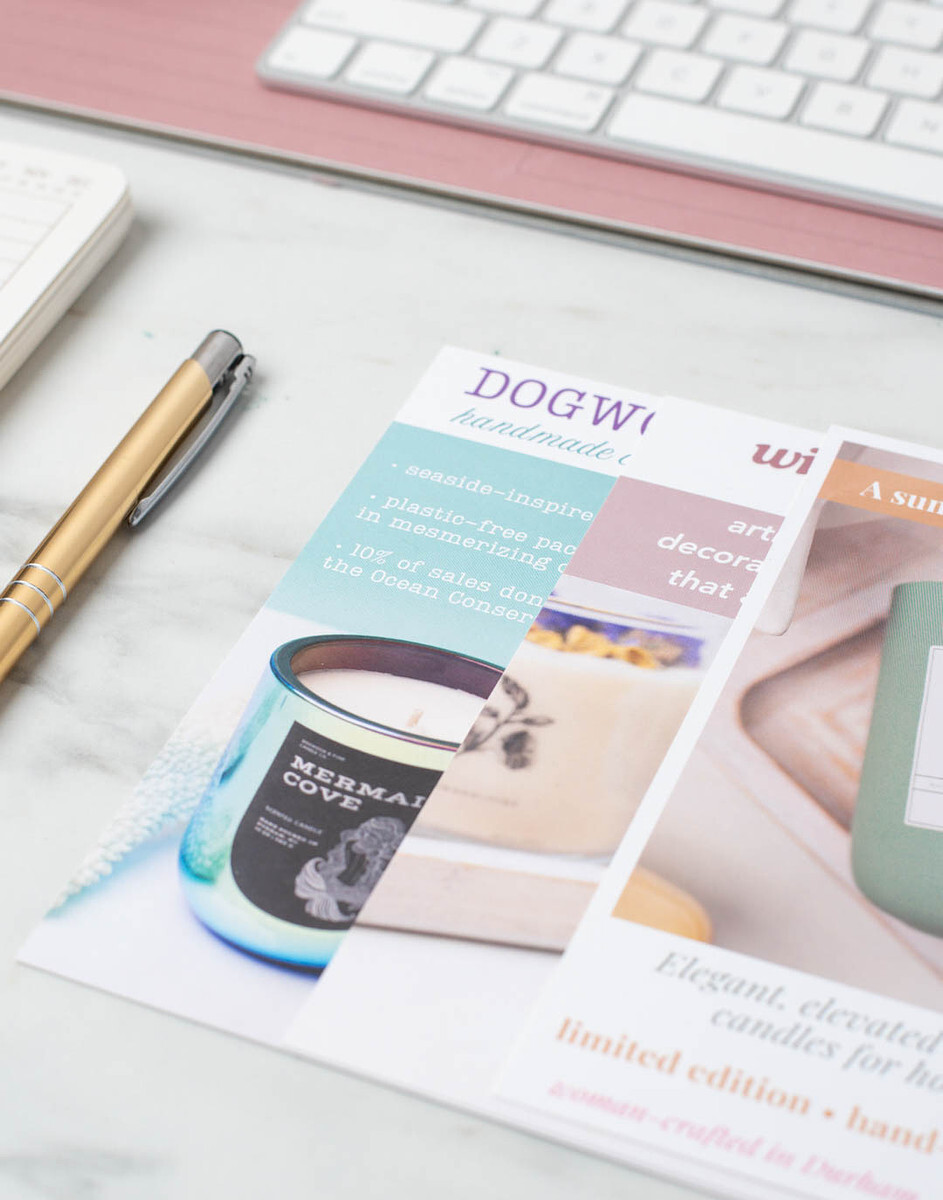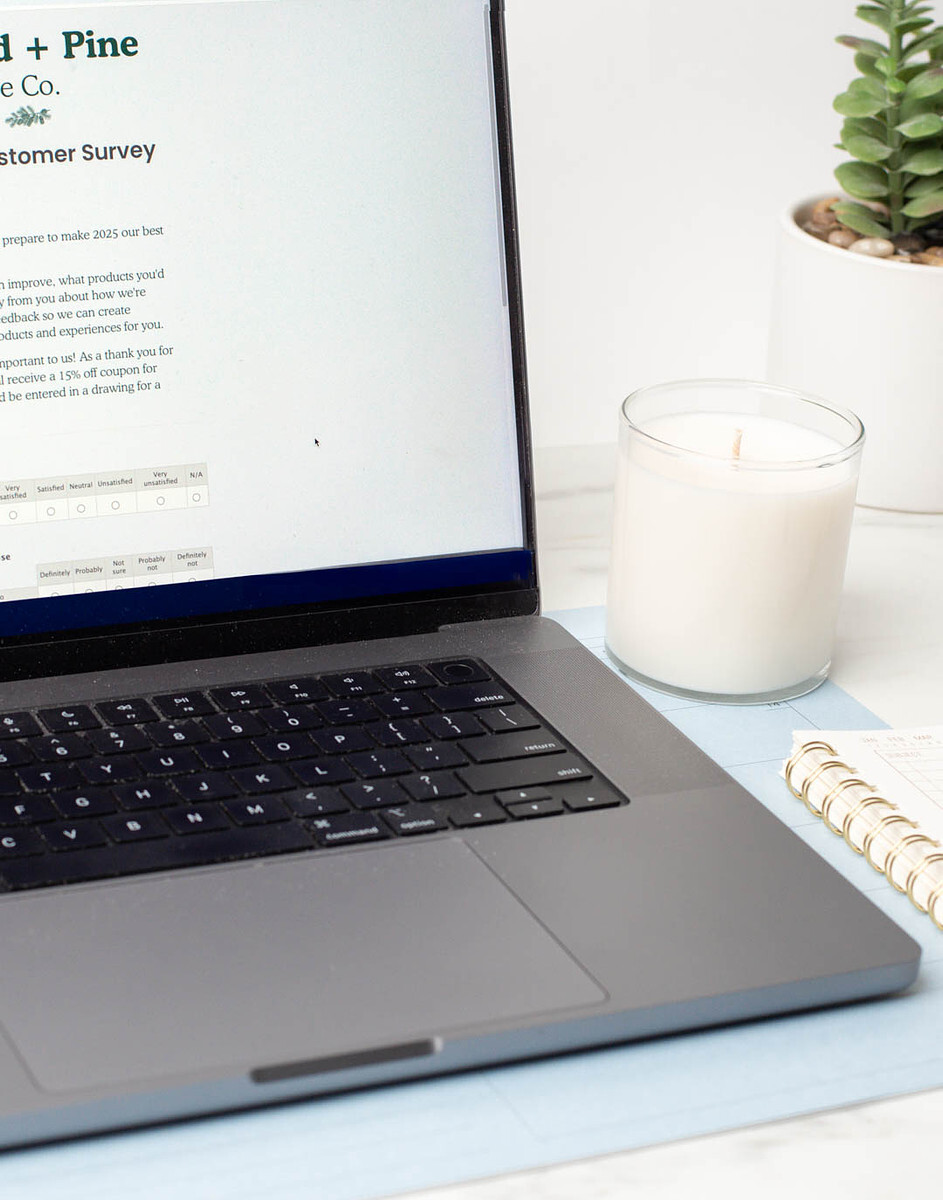How to build lasting wholesale relationships for your candle or soap business Ideas to nurture first-time wholesale orders into loyal, long-term partnerships.

You’ve done the hard work of getting your candles or soaps into retail stores—well done! But landing those wholesale accounts is just the beginning of the wholesale journey. Building strong connections with retail partners is the key to the longevity and success of your wholesale business.
In this article, we explore strategies to turn first-time buyers into long-term stockists. These approaches will help you create authentic partnerships that benefit both your business and your wholesale customers.
Why Nurturing Wholesale Relationships Matters
Serving your wholesale customers with care and attention isn’t just about being personable—it’s also a smart way to do business. When you invest time into nurturing these relationships, you’re likely to see:
- Steadier revenue through consistent reorders
- Natural sales growth as some shops order in larger quantities over time
- Increased brand exposure as your products reach new shoppers
Another reason to focus on deepening these relationships? Consider the investment of time and energy you made to land this business! From creating a line sheet to finding potential retailers and pitching your candles to them, you put in a lot of work. Maintaining these relationships is crucial for maximizing your return on this investment.
With these many benefits in mind, let's look at three strategies for long-term wholesale success: proactive communication, retailer support, and asking for feedback.
For makers using Faire, building relationships with shops that discovered your business there is especially important. Faire charges higher commission rates (typically 25%) on first-time orders, compared to lower commissions on reorders. Repeat orders often net you 10-15% more profit!
Beyond the better profit margins, these connections are crucial because Faire promotes other makers in your product category to shops buying on the platform. By developing genuine connections with your retailers, you’re more likely to remain their preferred vendor even when they’re shown similar options.


1. Prioritize Proactive Communication
Consistent, thoughtful communication forms the foundation of any strong relationship, including those made in business.
The key is being proactive: reach out to your stockists rather than waiting to hear from them and think of yourself as a partner in their success, not just a supplier waiting for orders.
This means going beyond simply responding to emails—it’s about creating meaningful touchpoints throughout your partnership. Here are three ways to do that:
Make a Memorable First Impression
The moment a retailer receives their first order from you, this is your chance to set the tone for the partnership. In addition to making sure the order is well packaged to arrive safely, tuck a handwritten thank-you note into the box that:
- Shares your excitement about partnering with them
- Briefly mentions a couple of specific reasons you think your products will resonate with their customers
- Reiterates your commitment to answering any questions and providing support
This sort of personal touch helps establish a positive connection and shows that you value their business.
Keep reading for even more ideas below on making an outstanding first impression with shelf talkers, complimentary products, and stockist support.
Follow Up Regularly
The next step in proactive communication with retailers is to have a follow-up plan. These post-sale touch points demonstrate your genuine interest in serving your wholesale customers and helping them succeed.
Whether an email or direct message, connecting at these intervals is helpful to retailers and allows you to both stand out and stay ahead of potential customer service issues:
- One day after the order is delivered: Ensure that all the products in the order arrived safely. If not, now’s the time to promptly take care of replacements or a partial refund.
- One month after the order was placed: Reach out to see how the products are selling. For retailers with online stores, you may even be able to check stock levels through their website. If inventory is running low, you look like a star for paying attention and reaching out at just the right time!
- Three months after the first order: If the shop hasn’t yet placed a reorder, touch base to learn more about what’s happening. A conversation will help you understand if there are barriers to reordering or potentially reignite interest in your products.
Use Wholesale-Specific Email Marketing
Maintaining a dedicated email list for wholesale contacts makes staying in touch with them simple and easy.
Include shops that presently work with you, as well as shops who’ve ordered in the past, and those that have expressed interest in carrying your goods on this list. Always get permission to to add retailers to this email list. You can invite them to join the email list when pitching them or when they place their first order.
Wholesale email marketing can happen less frequently than direct-to-consumer marketing. Reaching out once every one to three months is usually enough to keep your brand top of mind with them, especially if you’re also touching base directly.
Effective content for these emails includes:
- Announcements about upcoming seasonal collections
- Behind-the-scenes looks at your production process they can share with their customers
- Tips for merchandising and displaying your products effectively
- Success stories from other retailers (shared with their permission, of course)
- Wholesale-exclusive promotions
- Important reorder deadlines for seasonal items


2. Offer Valuable Retailer Support
On top of regular touch points with retailers, providing them with product information and educational support increases the possibility of your candles or soaps selling well in their stores—and keeps the reorders flowing in!
Here are three ways to empower your retailers and have greater success with your scented creations.
Shelf Talkers
Shelf talkers are postcard-sized signs displayed with your products in stores. Usually 4”x6” or 5”x7” in size, they briefly highlight various aspects of your brand and products such as:
- Benefits like candle burn times
- Answers to frequently asked questions
- Key ingredients or unique formulations
- Your brand story
- Charitable giving
While they feature eye-catching product photography, these are more than pretty signs. They function like silent salespeople to help create connections with, and educate, browsing shoppers.
Include them with wholesale orders and as you make new ones, be sure to send them to stockists as a courtesy.
We created the shelf talkers above in Canva and printed them in partnership with Avery WePrint. Save 10% on professionally printed labels, postcards, and more with AveryWePrint!
A cheat sheet is a simple, one-page document with quick facts about your products and brand. For candles, this sheet could include burn times, wax type, wick maintenance tips, and tunneling prevention. Information about product ingredients like waxes and fragrances, as well as packaging materials and their recyclability belong here too.
Encourage store staff to keep this sheet handy for when customers have any product questions.
Product Information and Education
Knowledgeable, enthusiastic shop staff are excellent brand ambassadors that can dramatically increase sales of your products. However, most shops carry multiple dozens, if not hundreds, of product lines. This poses a challenge for store employees to be familiar with all the goods on the shelves.
Providing resources about your line will help stores be more effective advocates that result in sales. Ideas include:
- Enclosing a “cheat sheet” that highlights product benefits, features, and key selling points
- Offering hands-on, in-person training sessions for local shops
- Creating video, or holding virtual, trainings for out-of-area retailers
- Sharing product descriptions and photos for retailers to use on their ecommerce sites and social media
Complimentary Products
Who doesn’t enjoy getting something for free? Rest assured, your retailers do! Sharing products “on the house” goes a long way to build both goodwill and support sales.
Like with any promotions, though, you want to be strategic. Giving away too much product will quickly add up, so you want to think through the most effective ways to employ this idea. Two approaches to consider:
- Free testers with qualifying orders. This could be standard for first orders, available for reorders over a certain amount, or both. Testers are tools that help stores show off the scents and, in the case of candles, allow customers to experience their hot throw before purchase.
- Samples of new fragrances or products. When launching new scents, products, or seasonal collections, sending samples to your retailers is highly beneficial. Not only can they preview the products, which helps them make their buying decisions more confidently, this type of attention also makes them feel valued and positions you as a proactive, thoughtful partner.
Keep seasonal buying patterns in mind when sending samples. Summer samples that arrive in early spring give retailers the needed time to plan their ordering, while fall and holiday testers are best sent in summer.


3. Solicit and Incorporate Retailer Feedback
The final strategy for creating lasting wholesale relationships is asking for feedback from the shops you work with. A willingness to hear the good, the not-so-good, and everything in between is validating to your wholesale customers and builds trust.
Additionally, your retail partners are an invaluable source of customer, market, and product insights! Because they interact directly with the end customers daily, shops uniquely understand preferences and can even spot emerging trends first.
You will naturally get some feedback from your shops by using the proactive communication ideas outlined above. But if you want more specific feedback, consider layering in an annual wholesale customer survey.
Wholesale Surveys
Surveys are an opportunity to gather more detailed and structured information from customers. They’re useful for understanding larger trends and are helpful in identifying patterns or topics that you should pay attention to.
Through surveys, you might ask about:
- Current products and their sales performance
- Ideas for new products and scents
- Marketing material usefulness
- Packaging effectiveness and appeal
- Ordering process satisfaction
- Shipping and delivery experiences
- Customer requests
- Suggested improvements
Free and affordable survey tools include SurveyMonkey, Typeform, and Jotform. They provide data visualizations to help you understand answer trends and help you identify areas that need attention.
Offer an incentive to each retailer who completes your survey. An effective and common incentive is a time-limited order discount. Providing an incentive like this goes a long way to express your appreciation for retailers sharing their time and observations with you!
Implementing Your Wholesale Nurturing Plan
Building strong wholesale relationships takes time and intention, but the effort you invest will pay dividends in long-term business sustainability and growth.
Start by choosing one approach from this article and implementing it. Once that’s integrated into your workflow, gradually add more elements until you have a comprehensive nurturing plan in place.
To help you decide on which strategy to begin with, consider these questions:
- What communication schedule would best serve your retailers while remaining manageable for you, or your team if you have one?
- What additional support materials might help your products sell better in stores?
- How can you make feedback collection a natural part of your wholesale process as it currently is?
- What systems do you need to put in place to consistently execute these strategies?
Successful wholesale relationships are more than merely transactions—they’re true partnerships. When you actively support your stockists, you create a foundation for mutual growth and prosperity. The resources you put into nurturing these relationships will often result in strong sales, more stable revenue, and opportunities for expansion as your retail partners grow alongside your business.
We’d love to hear about your experiences building your wholesale relationships. Share your stories or questions in the comments below!
And for more help on topics like setting profitable prices, scaling your business, and product photography, be sure to visit our Candle Making Business Guides.